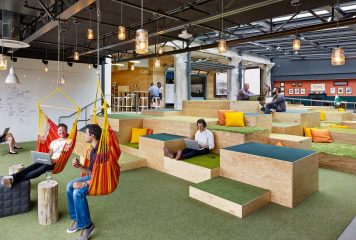Written by James Pellatt, Director of Workplace & Innovation, Great Portland Estates
For centuries people have been able to change and adapt their work according to their own motivations; the smart worker is therefore nothing new. The smart worker has been able to learn, adapt and respond to their environment, applying their skills to grow and develop. In the current climate, more choice is available to the smart worker than ever before, the cost of starting an enterprise is lower than ever, unemployment remains low and the changing world of work provides even greater opportunity.
By contrast, the smart workplace is only in its infancy and a significant opportunity exists to create the smarter workplace of tomorrow.
In a world where technology is blurring the lines between home and the office, Londoners are expecting more from their places of work. Creating space for London to thrive is becoming increasingly complex and as our occupiers’ needs are changing, so our products are adapting. At Great Portland Estates we have been spending considerable time researching and thinking ahead to challenge and anticipate the products and services that our occupiers will need into the next decade and beyond. By placing the end user at the core we are creating spaces where people want to spend time and which deliver the smart worker space that offers control over their individual environment; a choice of where they work within a supported yet relaxed environment; a building that promotes sustainability and providing access to superior levels of service and amenity.
Early next year we will see the completion of the Hickman, a new development in Whitechapel, set to be our smartest building to date. Sensors in the workplace that connect to a bespoke app will provide constant (anonymous) feedback as to how many people are there, as well as the building’s temperature, light levels, air quality and noise pollution. This use of smart technology helps us to work with occupiers to adapt and flex the building around their evolving business needs.
Most offices work at a constant set of criteria; the Hickman will be able to learn and adapt according to use. This lets us optimise the conditions for occupation, reduce energy costs and carbon emissions and thus make the workplace more sustainable. Combining these features with a fresh contemporary design, a choice of flexible work settings the smart worker finally gets the smarter workplace they deserve.



